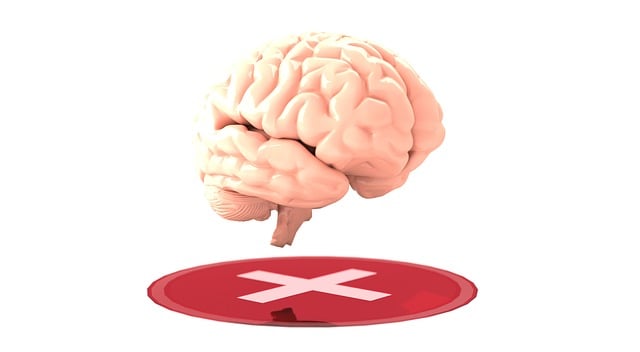Arvada Crisis Counseling Therapy (ACCT) emphasizes cultural sensitivity as a cornerstone of effective mental healthcare, addressing the unique needs of clients from diverse backgrounds. By recognizing and valuing cultural factors like race, ethnicity, religion, and socioeconomic status, ACCT fosters inclusive environments that build trust and encourage open communication. This approach reduces stigma, mitigates provider burnout, and enhances outcomes for anxiety relief and other mental health concerns, particularly within communities of color and marginalized groups. Through continuous education, holistic practices, and culturally informed interventions, ACCT ensures personalized care tailored to individual identities.
Cultural sensitivity is a cornerstone of effective mental healthcare, especially in a diverse society. This article explores the crucial role of cultural competency in counseling, highlighting real-world applications like Arvada Crisis Counseling Therapy’s approach. We delve into the impact of understanding cultural diversity on therapy outcomes and strategies to overcome barriers in providing responsive care. Additionally, we emphasize continuous learning as essential for adapting to diverse populations, drawing from innovative practices such as Arvada’s model.
- Understanding Cultural Diversity in Mental Health Contexts
- The Impact of Cultural Sensitivity on Effective Counseling
- Arvada Crisis Counseling Therapy: A Cultural Competency Approach
- Overcoming Barriers to Providing Culturally Responsive Care
- Continuous Learning and Adaptation for Diverse Populations
Understanding Cultural Diversity in Mental Health Contexts

In today’s diverse society, mental healthcare practitioners in Arvada Crisis Counseling Therapy need to embrace cultural sensitivity as a cornerstone of their practice. Understanding and appreciating the vast array of cultural backgrounds among their clients is essential for providing effective care. Cultural diversity encompasses not just race and ethnicity but also religion, sexual orientation, socioeconomic status, and disabilities, each bringing unique perspectives and experiences that shape individuals’ mental health journeys.
By recognizing these differences, therapists can create inclusive environments that foster trust and open communication. This approach is crucial in reducing the stigma associated with mental illness, especially within communities of color and other marginalized groups. Moreover, it aids in preventing burnout among healthcare providers by promoting cultural competence and empathy, thereby enhancing overall well-being and improving outcomes for clients seeking anxiety relief or support for other mental health concerns.
The Impact of Cultural Sensitivity on Effective Counseling

In the diverse landscape of mental healthcare, cultural sensitivity is a vital tool for effective counseling. It involves understanding and appreciating the unique cultural backgrounds, values, and beliefs of clients, which can significantly enhance the therapeutic process. When counselors demonstrate cultural sensitivity, they create an environment where individuals from various ethnic, racial, or socioeconomic groups feel seen, heard, and respected. This fosters trust and encourages open communication, allowing for a deeper exploration of issues related to emotional regulation and mood management.
For instance, in Arvada Crisis Counseling Therapy sessions, culturally sensitive practices enable counselors to navigate the intricate web of emotional healing processes tailored to individual needs. By acknowledging cultural nuances, therapists can adapt their approaches, ensuring that interventions are not only effective but also culturally appropriate. This personalized approach not only improves the quality of care but also promotes positive outcomes in mental health treatment, benefiting clients from diverse backgrounds who seek support for their emotional well-being.
Arvada Crisis Counseling Therapy: A Cultural Competency Approach

Arvada Crisis Counseling Therapy (ACCT) represents a pioneering approach to mental healthcare that prioritizes cultural sensitivity and competency. By understanding and respecting diverse cultural backgrounds, ACCT offers effective crisis intervention guidance tailored to individual needs. This holistic method goes beyond traditional therapy by incorporating emotional intelligence, enabling practitioners to connect deeply with clients from various communities.
The organization hosts Stress Management Workshops, providing valuable resources for emotional well-being. These workshops are designed to empower individuals with the skills needed to navigate life’s challenges, fostering resilience and cultural understanding. ACCT’s commitment to continuous education ensures their team is equipped to handle a wide array of cultural contexts, making crisis intervention more inclusive and impactful.
Overcoming Barriers to Providing Culturally Responsive Care

Overcoming barriers to providing culturally responsive care is a critical step for mental healthcare professionals aiming to offer effective support to diverse client populations. Many challenges arise from misunderstandings and misconceptions about different cultural beliefs, values, and practices, hindering the ability to deliver personalized treatment. These barriers can range from language differences, where accurate communication becomes difficult, to unconscious biases that impact assessment and intervention choices.
Arvada Crisis Counseling Therapy emphasizes the importance of cultural sensitivity in addressing these challenges. Through ongoing training in emotional well-being promotion techniques, stress reduction methods, and self-care practices tailored to diverse communities, therapists enhance their ability to connect with clients from various cultural backgrounds. By embracing a culturally responsive approach, Arvada Crisis Counseling Therapy ensures that all individuals receive care that respects their unique identities while effectively addressing their mental health concerns.
Continuous Learning and Adaptation for Diverse Populations

In the dynamic landscape of mental healthcare, cultural sensitivity is paramount. For professionals like those providing Arvada Crisis Counseling Therapy, continuous learning and adaptation are essential to effectively serve diverse populations. Staying abreast of cultural nuances, historical contexts, and community-specific challenges ensures that therapeutic practices remain inclusive and relevant. This ongoing process involves actively seeking out new knowledge, participating in professional development workshops, and engaging with communities to understand their unique perspectives and needs.
Such adaptability is crucial not only for improving patient outcomes but also for mitigating potential risks. Effective risk management planning for mental health professionals heavily relies on cultural sensitivity. By understanding the emotional healing processes within different communities, therapists can tailor interventions that address specific cultural barriers and promote positive outcomes. Moreover, public awareness campaigns development can be enhanced by incorporating culturally informed strategies, ensuring that messages resonate with diverse audiences and encourage open conversations about mental health.
In the diverse mental healthcare landscape, cultural sensitivity is no longer an option but a necessity. As demonstrated by innovative practices like Arvada Crisis Counseling Therapy’s cultural competency approach, understanding and embracing cultural diversity significantly enhance counseling effectiveness. By overcoming barriers and continually learning from diverse populations, mental health professionals can provide responsive care tailored to individual needs. This not only improves patient outcomes but also fosters trust and strengthens the bond between therapists and clients from various cultural backgrounds.












